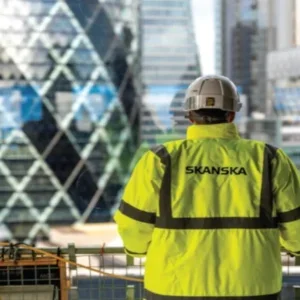
Nearly 50 years ago, in that lost, sweaty Britain of industrial upheaval and public ownership, Ted Heath’s government passed the Water Act of 1973. Establishing a National Water Council, its chairman nominated by a government minister, the law also created ten new water authorities. Unsexily blunt, their names speak to an age before focus groups: the Northumbrian Water Authority rubbed shoulders with the Wessex Water Authority and the North West Water Authority. Their vast bureaucratic apparatus feels antique too, with their boards of governors and hordes of sinecured staff. As one MP grumbled in 1980, the Thatcher government had been forced to remind authority chairmen about “efficiency and the economical use of staff”. Like so much else from 1970s Britain, the water authorities have vanished. But if these state-run behemoths were dragged down by a riptide of privatisation, their ghosts remain. Wessex Water and Anglian Water still exist – as private companies. The same is true of Severn Trent. Just as it was during the Three-Day Week, the firm is based in the Midlands, serving customers from Derby to Shrewsbury to Coventry. Yet with yearly revenue of £1.8bn, it’s clear that the Severn Trent of today is very different from its nationalised cousin. More than that, the company has undergone a fundamental change in style. Beer and beige suits are out, replaced by cheerful faces on a vibrant website, complete with a pally exhortation to be “a water saving hero”.
£1.2bn
Severn Trent aims to spend this amount on Britain’s environment.
Severn Trent
“In 2019 we outlined our Triple Carbon Pledge, committing to net zero operational carbon emissions, 100% renewable energy and an all-electric vehicle fleet by 2030.”
70k
The number of British-build vans Electric Vehicle Fleet Accelerator van aims to buy by 2030.
BP
As that last comment implies, one of the best ways to understand the difference between the two Severn Trents is in its environmental commitments. From recycling waste to its glittering sustainability reports (smiling faces aplenty), this is obviously an organisation with the planet on its mind, even if recent pollution fines rather dampen the rhetoric. That’s clear, too, in Severn Trent’s recent push towards sustainability in another field: its fleet of vehicles. Ferrying engineers to leaks and reservoirs and floods, the company is inconceivable without them. Until recently, however, Severn Trent had powered its fleet the old-fashioned way – with trips to the petrol station. Yet here, too, change appears to be swinging round the bend. With plans to electrify its entire fleet by 2030, Severn Trent may finally be putting one of the last vestiges of its twentieth-century heritage to bed, with happy consequences for staff and the environment alike.

Electric feel
Over the past decade, a single word has been on the lips of British fleet experts everywhere: electrification. Electric vehicles (EVs) have been impossible to avoid, plastered on press releases and trumpeted by managers at companies from Devon to Dundee. In 2021, for example, Royal Mail unveiled an order for 3,000 low-emission delivery vans, while delivery giant DPD announced it was invested in 750. These individual efforts are shadowed by collective work. In July last year, seven major companies collaborated to form the Electric Vehicle Fleet Accelerator (EVFA). Encompassing Tesco and BT, among others, the group aims to electrify all its vehicles by 2030. At the same time, the ECFA is using its combined commercial heft to secure help from the government, pushing Whitehall to build significantly more electric charging points.
Severn Trent’s own move towards electrification – in fact it forms part of the EVFA – is therefore far from unique. Nor is the rush away from traditional combustion engines particularly surprising. Once again, government is vital in prodding change along, not least through its 2030 ban on the sale of new petrol cars and vans, and its 2050 carbon neutrality target. No wonder, then, that the Coventry-based company is also pinpointing that same year for its own transformation.
“In 2019 we outlined our Triple Carbon Pledge, committing to net zero operational carbon emissions, 100% renewable energy and an all-electric vehicle fleet by 2030,” says Helen Miles, capital and commercial services director at Severn Trent.
Yet as Miles continues, that’s only half the story. “While 2030 is our deadline,” she explains, “we wanted to make the change to an all-electric vehicle fleet as soon as possible, and recent advancements in battery life and mileage ranges have now made EV’s more operationally viable for us as a business.” That last point is important. If speeches by Boris Johnson are an important push factor for firms like Severn Trent, better technology tugs them in a similar direction. Though electric vehicles have been around for a while, moreover, they’ve traditionally been hamstrung by reliability issues. Despite promises by industry insiders to the contrary, they’ve historically broken down just as often as their petrol counterparts. Cost has also been a challenge. As recently as 2010, lithium-ion batteries, of the sort common in EVs, were 80% pricier than they are now.
Combined with a lack of EV infrastructure – Severn Trent’s new vans wouldn’t get far without chargers – no wonder the march towards the EV uplands has been slow. But with Shell alone now planning to install 50,000 new electric sockets by the middle of this decade, to say nothing of national procurement plans (the EVFA aims to buy 70,000 British-built vans by 2030), that’s clearly changing. More than that, says Miles, her company has a moral obligation to go green. That’s doubly true given what Severn Trent actually does. “As a water and wastewater company,” she explains, “we recognise that we are well-placed to take a leading role in helping the UK become a sustainable, low-carbon economy. We take care of one of life’s essentials, water, so a healthy environment is vital to the long-term sustainability of our business.”
A bit of a Kona
At first glance, Severn Trent’s revamped fleet doesn’t look particularly impressive. Curved at the back and squat like pork pies, these Hyundai Konas hardly seem like the vanguard of the green revolution. Peek under the bonnet, however, and things get more exciting. With a range of around 300 miles on a single charge, these fully electric vehicles reach a top speed of over 100mph – surely enough for even the busiest engineers. Beyond that, the Kona’s charging speed is impressive too. Able to normally re-juice in under ten hours, or just 47 minutes in a pinch, Severn Trent’s staff won’t be waiting long to get back on the road.
Describing the vehicles, Miles begins by emphasising the ethical value they offer her team. As she puts it, “it’s about making a real difference to the environment and the people we serve, as well as reducing impact on future generations.” That’s undoubtedly true, and slots neatly into Severn Trent’s aim to spend a colossal £1.2bn on Britain’s environment. More than that, however, it’s clear the company, in a way unlikely of its state-run forebear, also has its eyes on the bottom line. Though the asking price for an electric vehicle is more expensive – the Kona comes in at around £23,000, compared to £20,000 for dirtier models – Severn Trent soon expects to make good on its investment.
As Miles says, this can be understood in a number of ways. “While the initial cost of an electric vehicle is currently more expensive, as the scale of production increases in time this is likely to reduce,” she explains. “Overall, electric vehicles have lower running, maintenance and fuelling costs when the correct fuelling strategy is used.” That point on fuelling isn’t peripheral. As Shell’s mammoth investment in charging points implies, these plugs are a vital pillar of EV plans everywhere. Severn Trent is clearly no exception. In May last year, after all, it announced a partnership with EVBox to build 352 charging points across its area of operations. Unsurprisingly, EVBox is being strategic with where it places its plugs, with many installed at Severn Trent’s operational sites, offices and transport workshops.
Nor is EVBox’s role ending there. Among other things, the company is also offering online training on how to use its charging points – and that’s far from the only place where Severn Trent is relying on outside help.
That’s particularly true, suggests Miles, when it comes to her firm’s work with the EV100 initiative, an international environmental group aiming to make electric transport “the new normal” by 2030. “Collaboration is going to be essential to the successful rollout of electric vehicles,” Miles says, adding that “sharing knowledge in managing EV fleets” is just one of the benefits EV100 can offer. At the same time, Miles expects the state to take a more active role too. Though Severn Trent is currently installing electric infrastructure for its own use, she expects the government will have to eventually intervene too.
Supply chain gain
How does all this fit into Severn Trent’s broader vehicle sustainability plans? It’s clear that the company is setting its sights on the stars – just as well given it was recently caught discharging sewage into a Worcestershire brook. Apart from its own £1.2bn environmental shopping list, after all, the company is also working to reduce emissions across its supply chains. That means tackling climate change especially, but also protecting nature in other ways. Any flora planted by Severn Trent’s partners, the company’s supply chain manifesto emphasises, must be “British native species to prevent the spread of invasive non-native species”. In the same vein, the firm expects its suppliers to engage in the circular economy, single-use plastics and reducing packaging.
“Collaboration is going to be essential to the successful rollout of electric vehicles.”
£1.8bn
Severn Trent’s yearly revenue, making it one of Britain’s biggest water companies.
Hargreaves Lansdown
With all this on the horizon, it’s perhaps unsurprising that Miles is similarly optimistic about her firm’s move towards automotive greenery. That’s true, she stresses, across Severn Trent’s vehicle fleet. The electric Konas may be coming – but in the meantime her employer is also experimenting with alternative fuels. Near its Coventry headquarters, the company is working with the local university to convert sewage from ammonia into hydrogen fuel. “It’s more than electric,” Miles says. “We are all learning and leading different elements of research and development.” They might nearly share a name, but the Severn Trent Water Authority this certainly isn’t.






